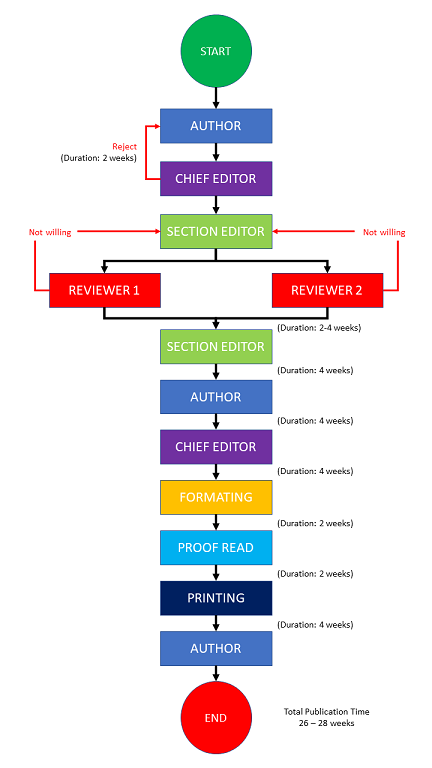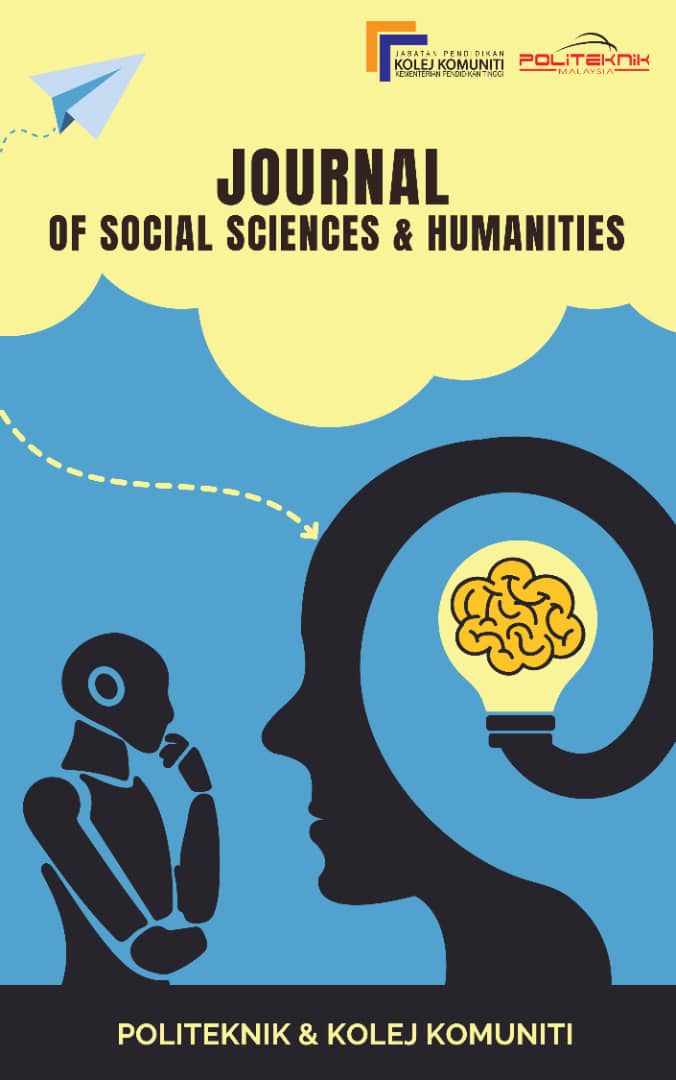Submissions
Submission Preparation Checklist
As part of the submission process, authors are required to check off their submission's compliance with all of the following items, and submissions may be returned to authors that do not adhere to these guidelines.- The submission has not been previously published, nor is it before another journal for consideration (or an explanation has been provided in Comments to the Editor).
- Submission files are in Microsoft Word file format and written in English.
- Where available, URLs for the references have been provided.
- The text is base on PKKJLLL template guidelines for ejurnal JPPKK
- The text adheres to the stylistic and bibliographic requirements outlined in the Author Guidelines.
Article
Articles that describe the theory and its application to practice are welcome, as are those that illustrate the transfer of multi-disciplinary techniques from other disciplines. Articles of carefully executed experimental work that is soundly interpreted are also welcome. The overall focus is on original and rigorous research results that have generic significance.
Lifelong Education
The journal's scope in the area of lifelong education could include topics related to adult learning, continuing education, professional development, and educational opportunities for individuals of all ages. It may cover research on innovative teaching and learning methods, educational policies, assessment and evaluation, lifelong learning strategies, and the impact of lifelong education on individuals, communities, and societies.
Sociological, Policy and Political Studies
The journal's scope in this area could encompass various sociological, policy, and political studies topics. It may include research on social structures, cultural dynamics, social inequalities, social change, public policy analysis, governance, political systems, political behavior, political ideologies, and comparative studies of societies. The journal could also explore the intersection of sociology, policy, and politics, focusing on issues such as social justice, human rights, social movements, globalization, and the role of governments in shaping societies.
Social Entrepreneurship
The journal's scope in social entrepreneurship would involve research and analysis of entrepreneurial initiatives with a social or environmental focus. It could cover topics such as social innovation, impact assessment, sustainable business models, social enterprise management, social finance, corporate social responsibility, social entrepreneurship education, and case studies of successful social enterprises. The journal may also explore the challenges and opportunities in the field, discuss policy implications, and provide insights into the role of social entrepreneurship in addressing social and environmental issues.
Community Empowerment
The journal's scope in the area of community empowerment could encompass research on strategies and practices aimed at enhancing communities' capacity, agency, and resilience. It may include community development, participatory approaches, community-based organizations, grassroots movements, social capital, community engagement, empowerment evaluation, and community-driven initiatives for social change. The journal could explore theoretical perspectives and practical applications, highlighting successful examples of community empowerment and discussing the factors contributing to or hindering community development.
Copyright Notice
JPPKK Copyright









